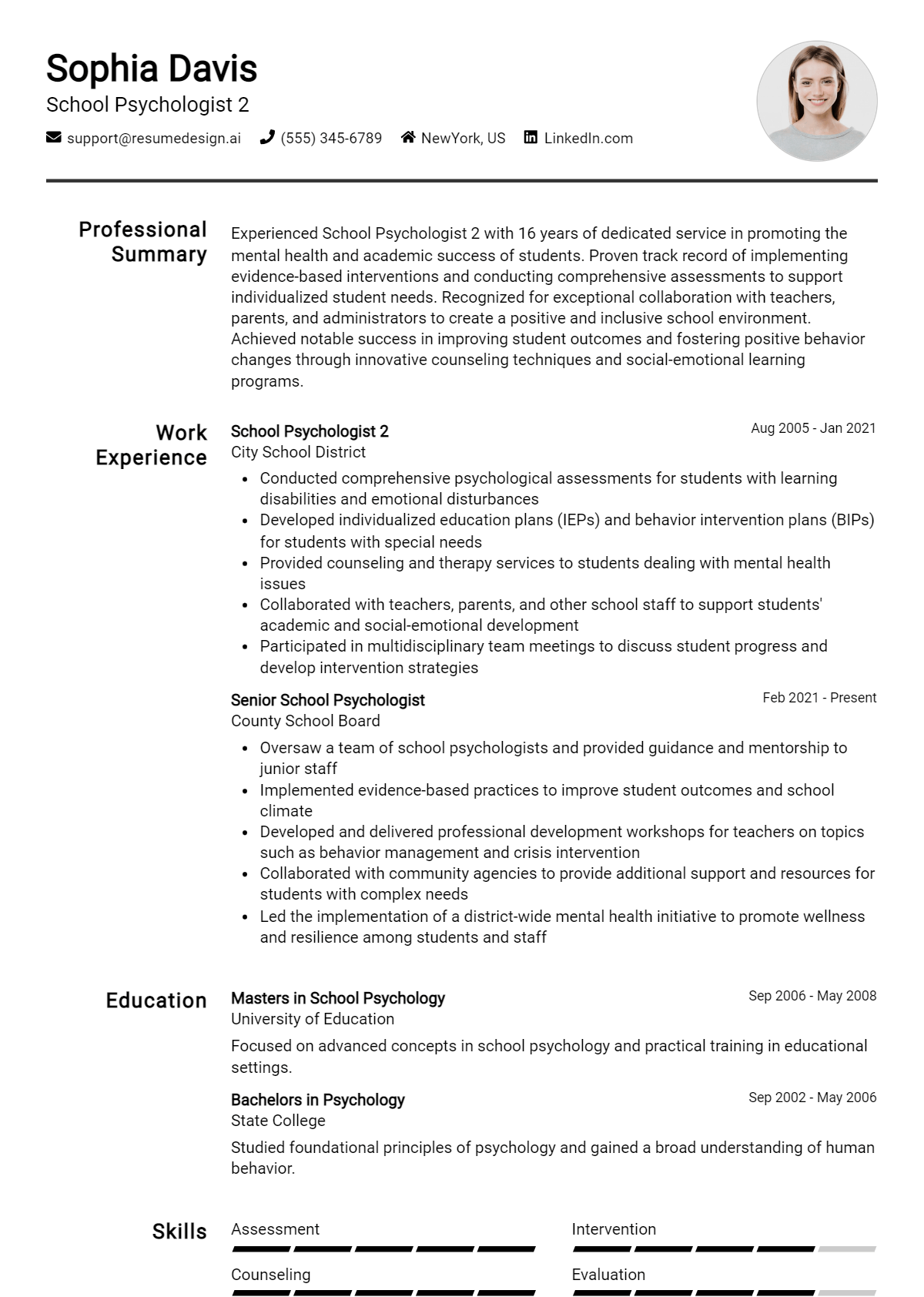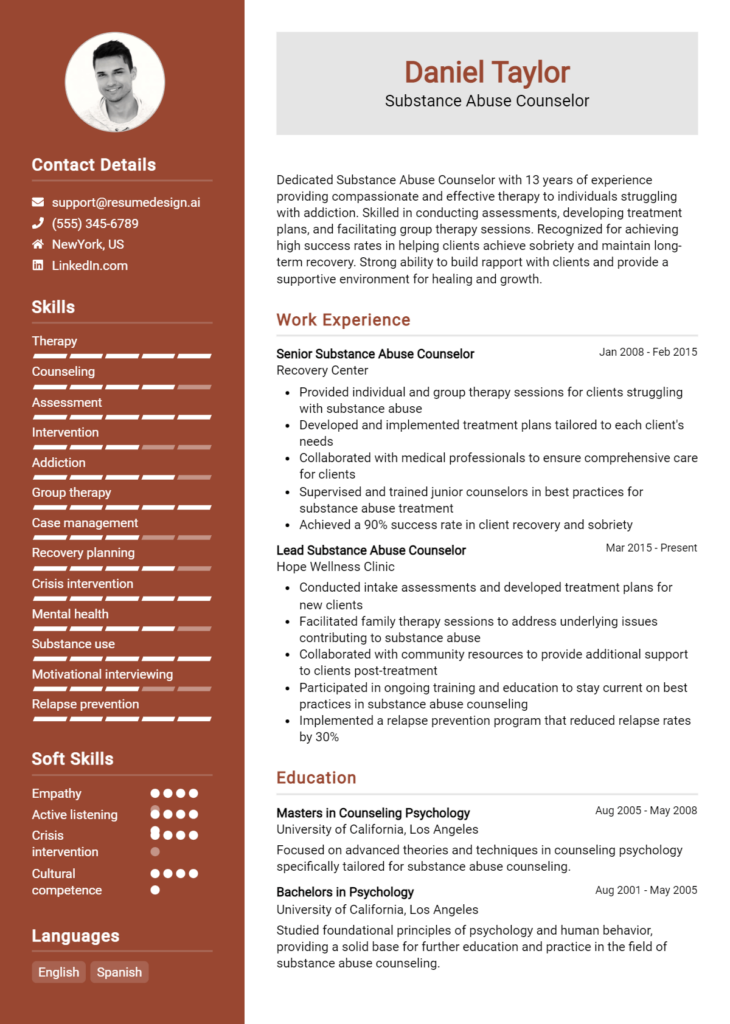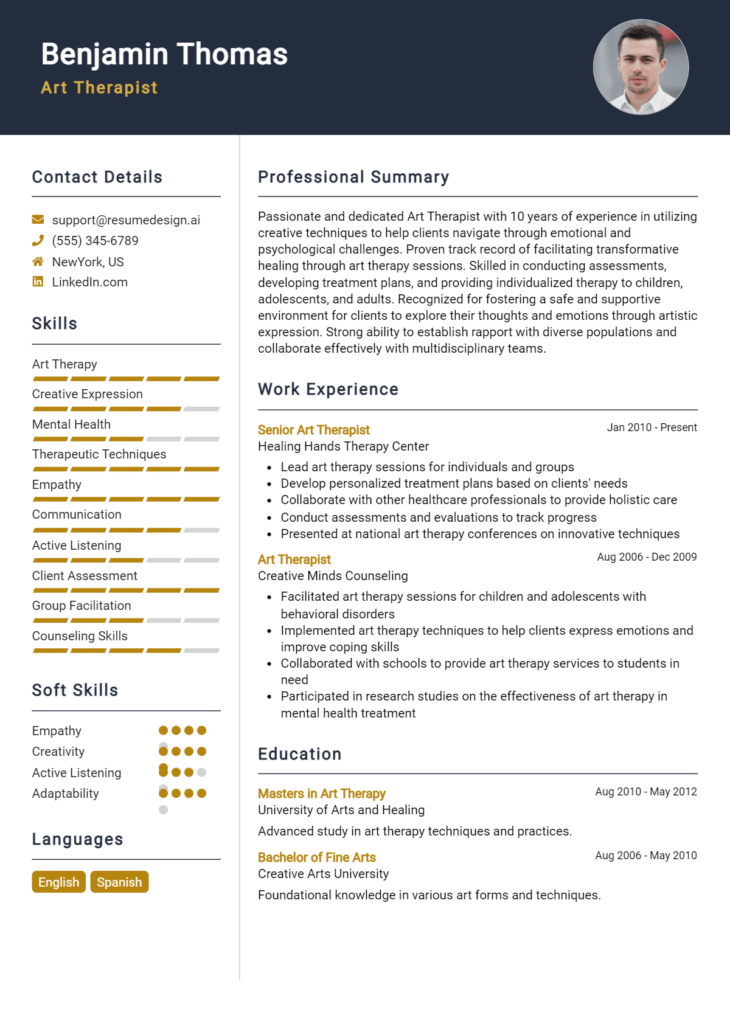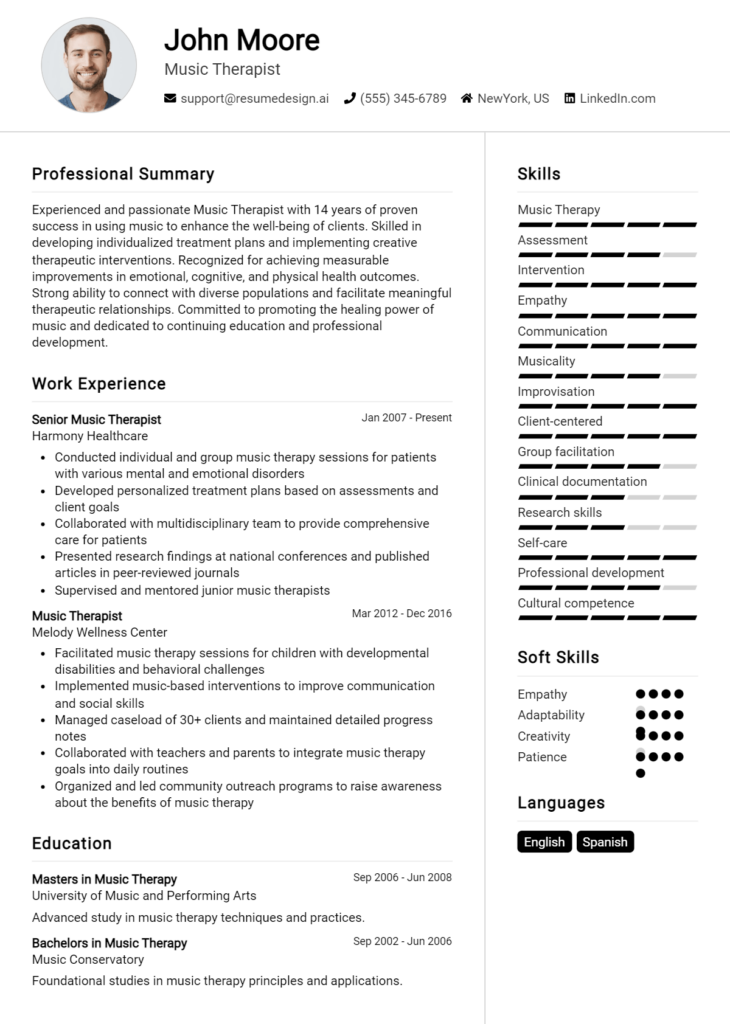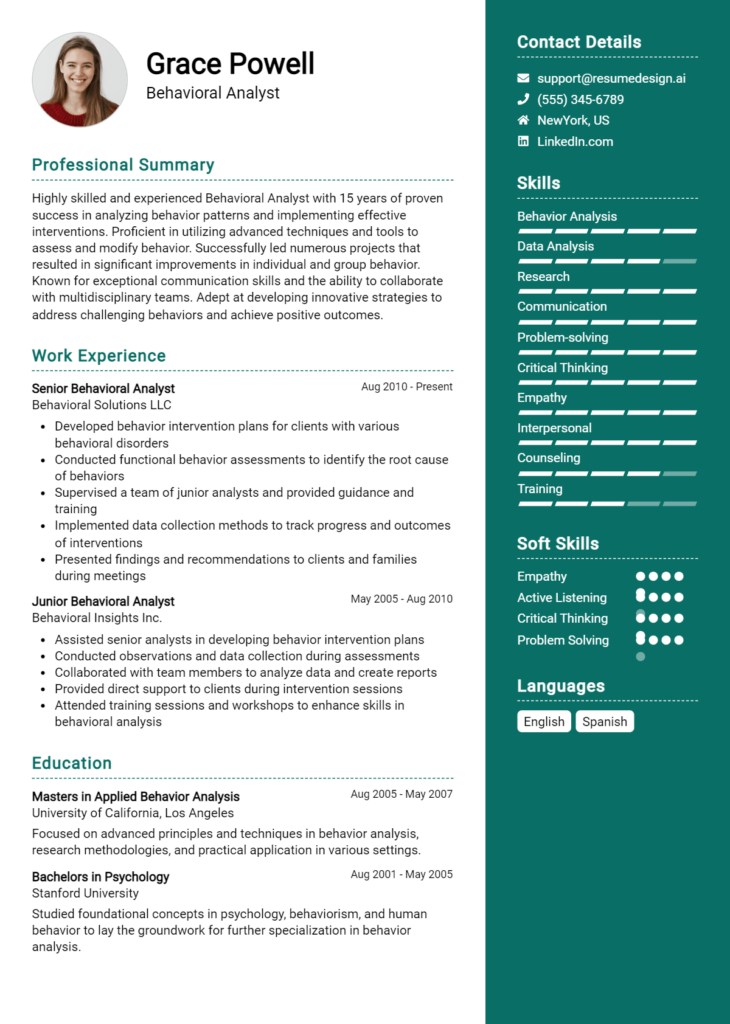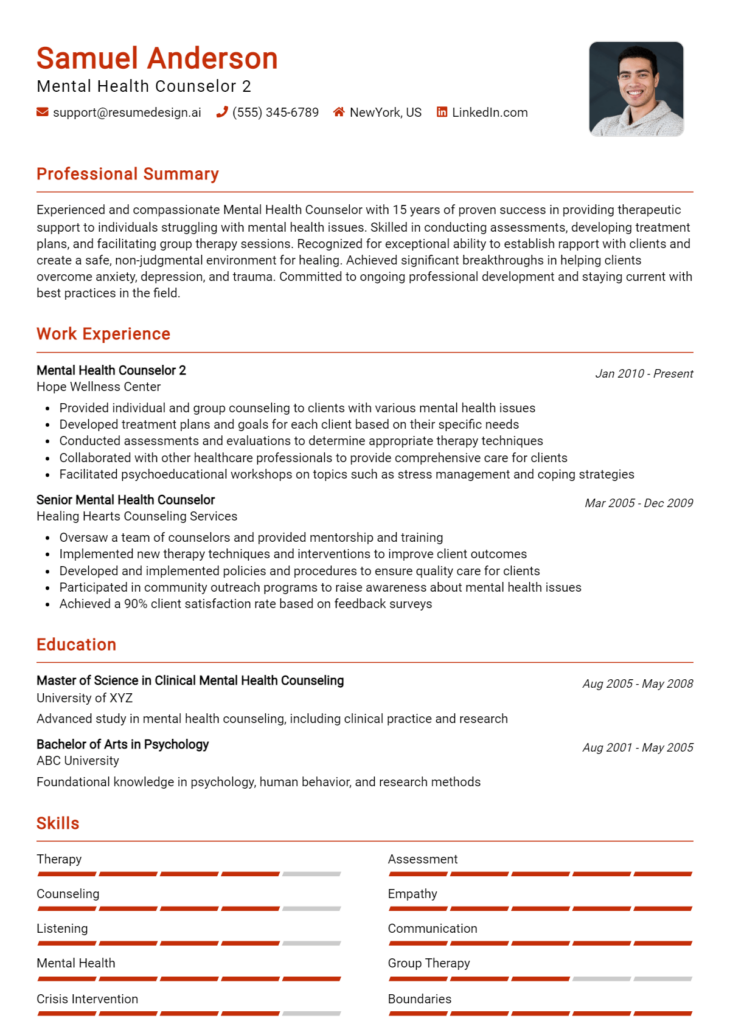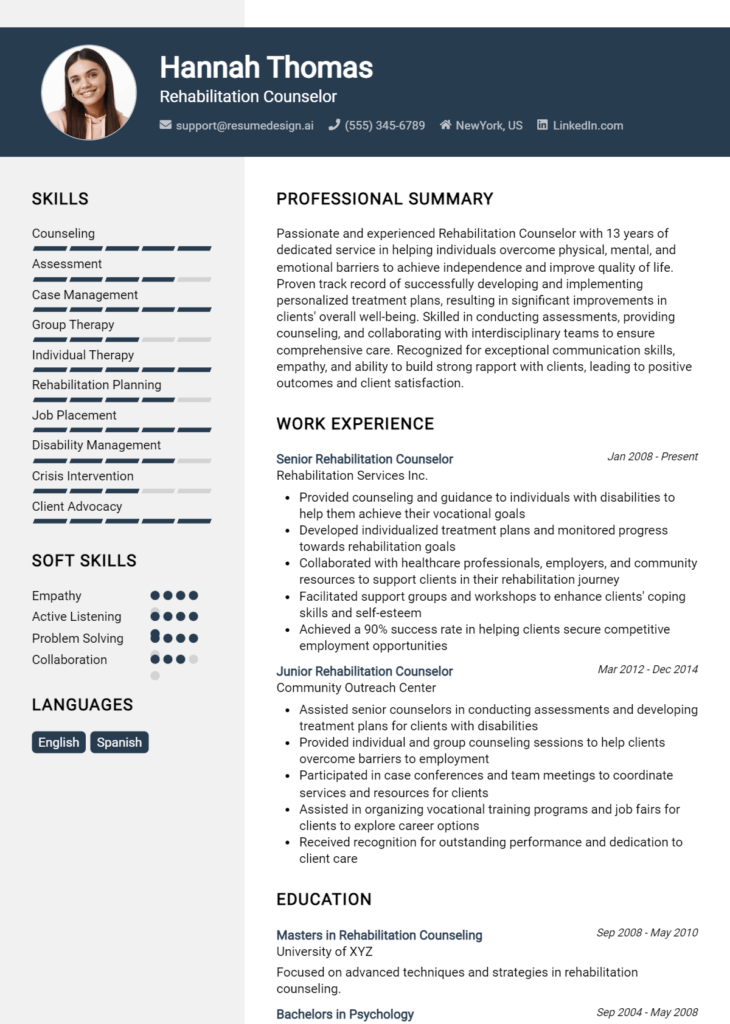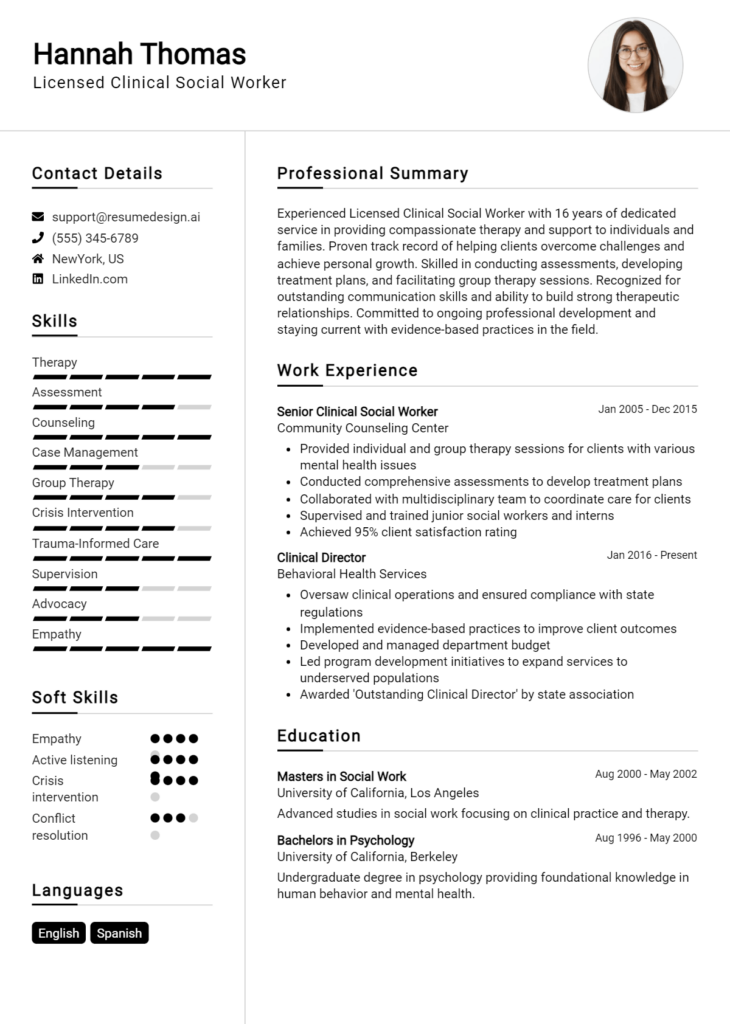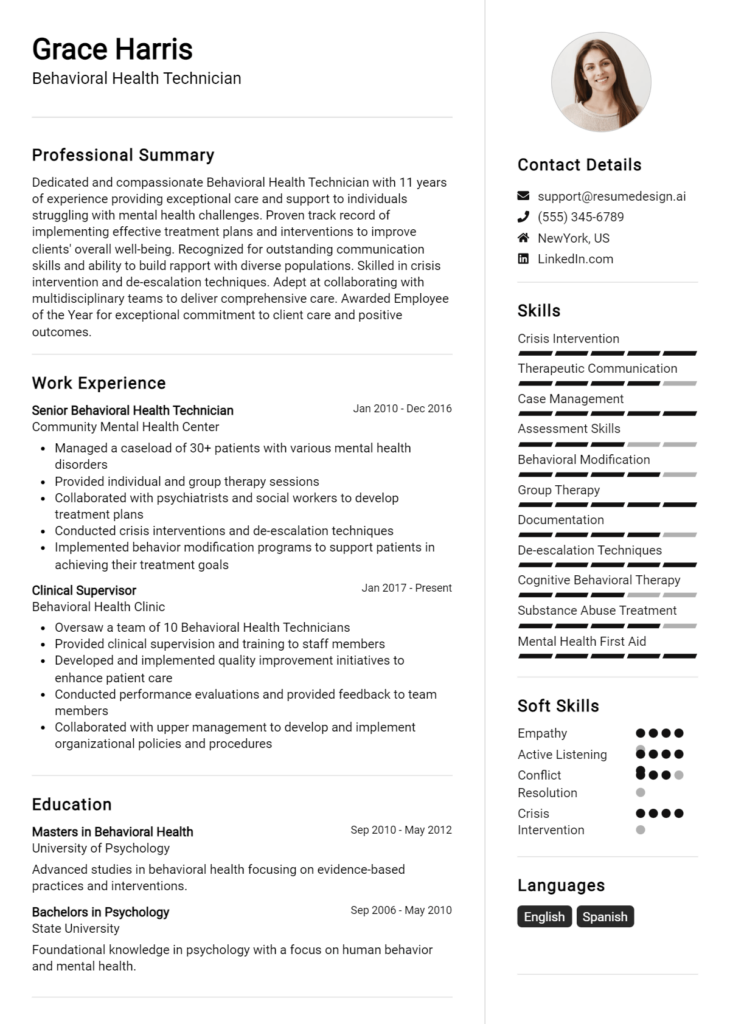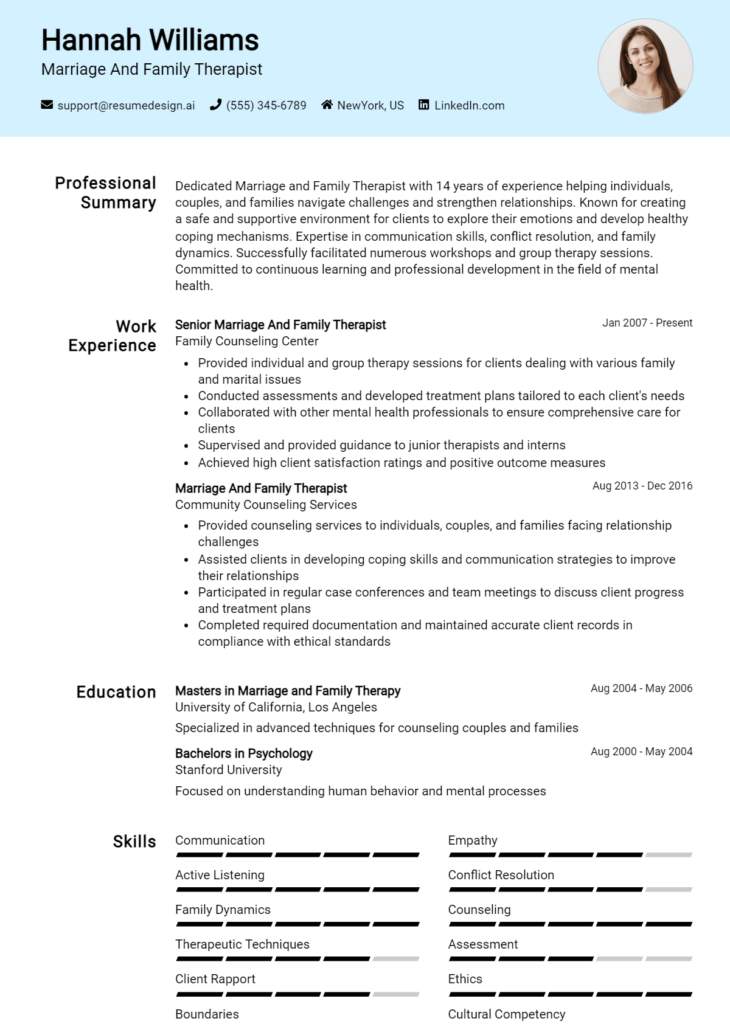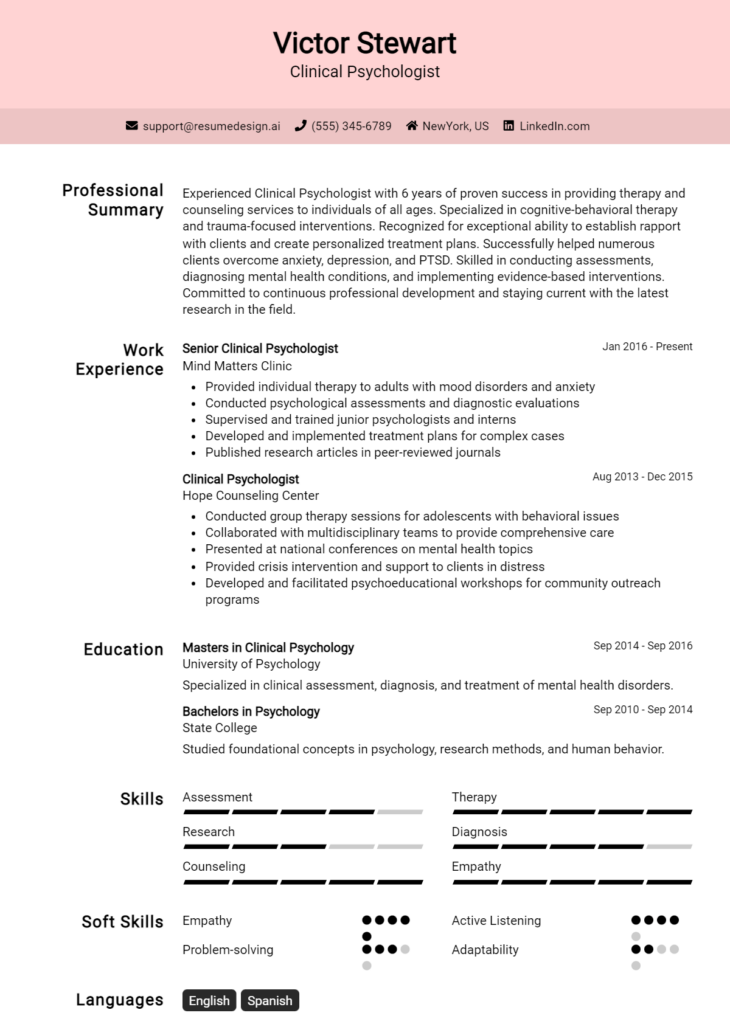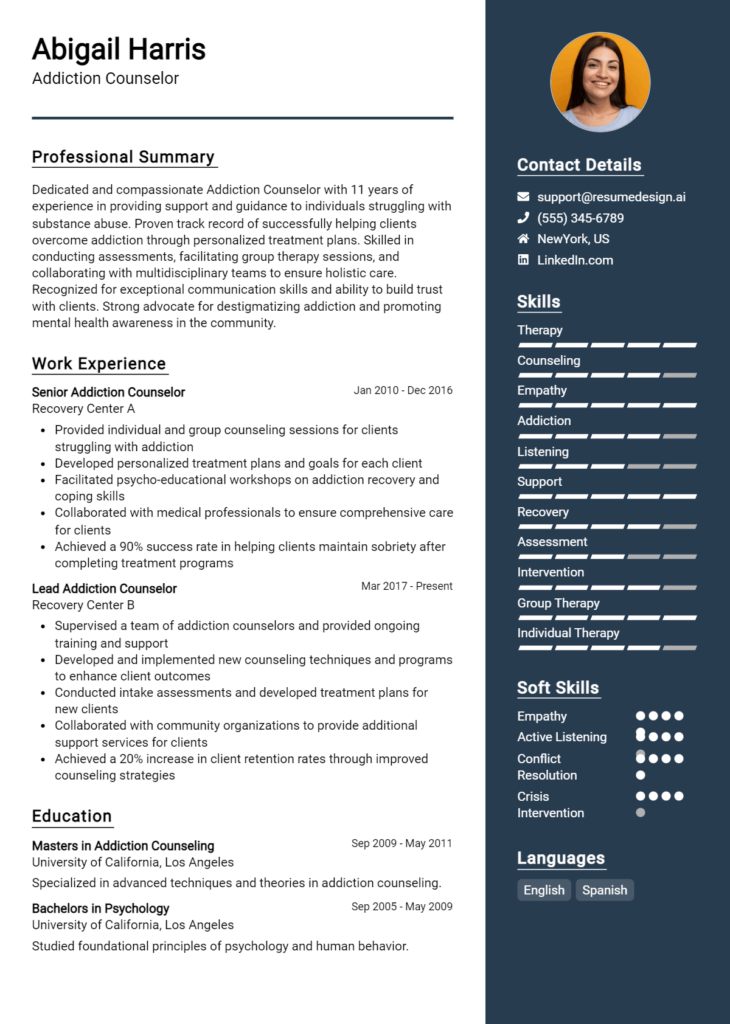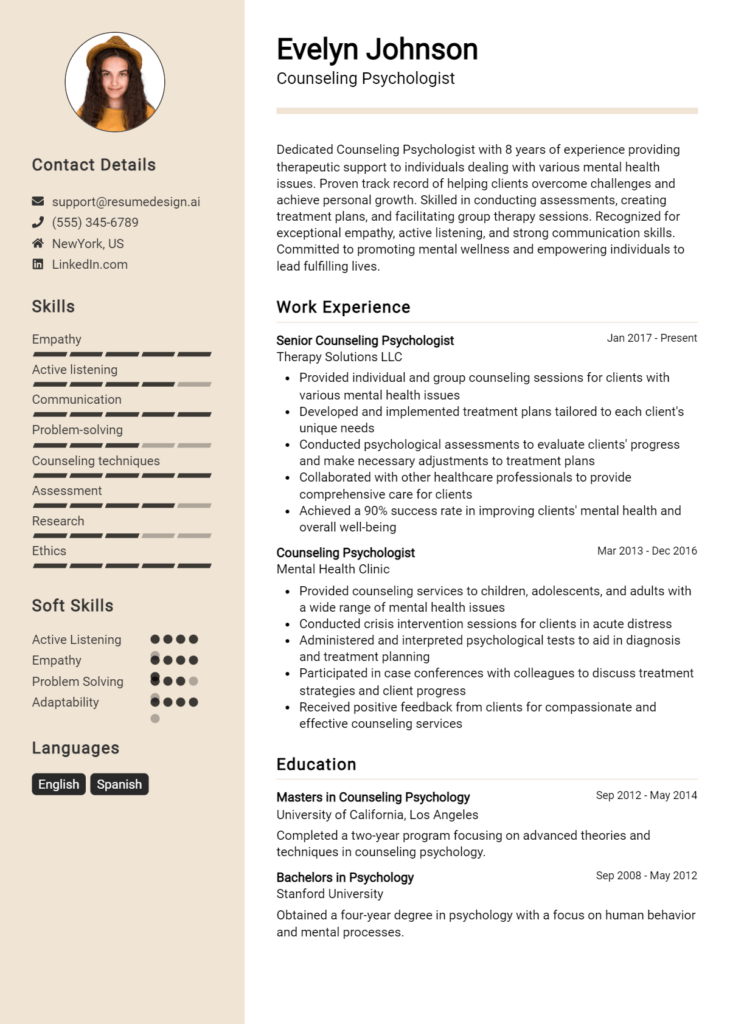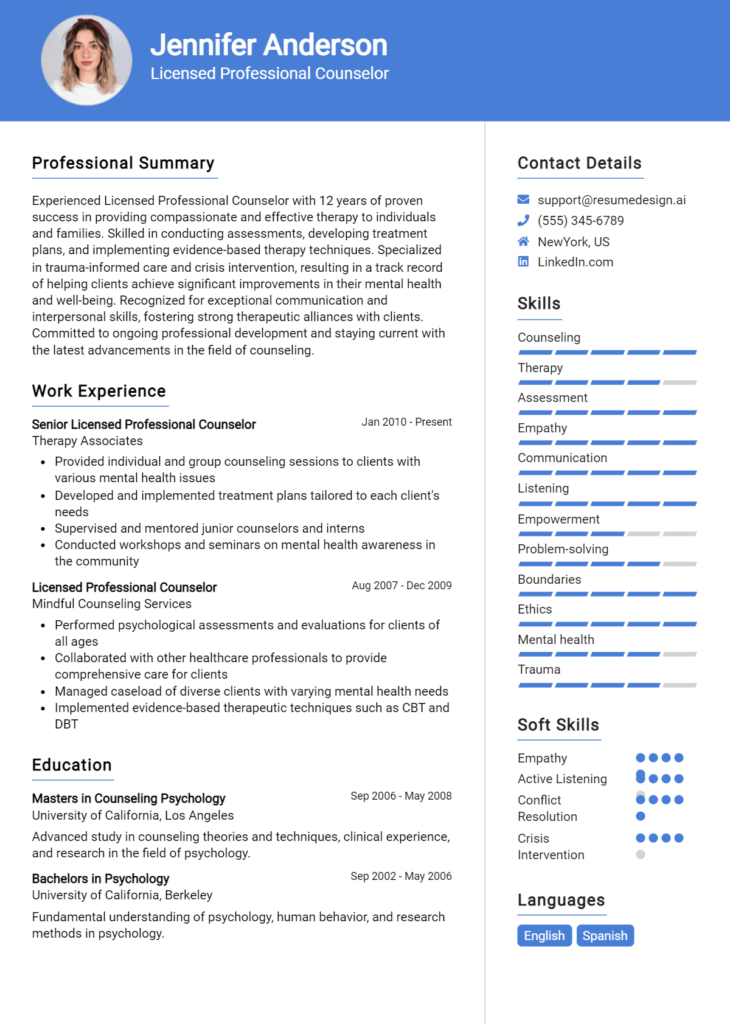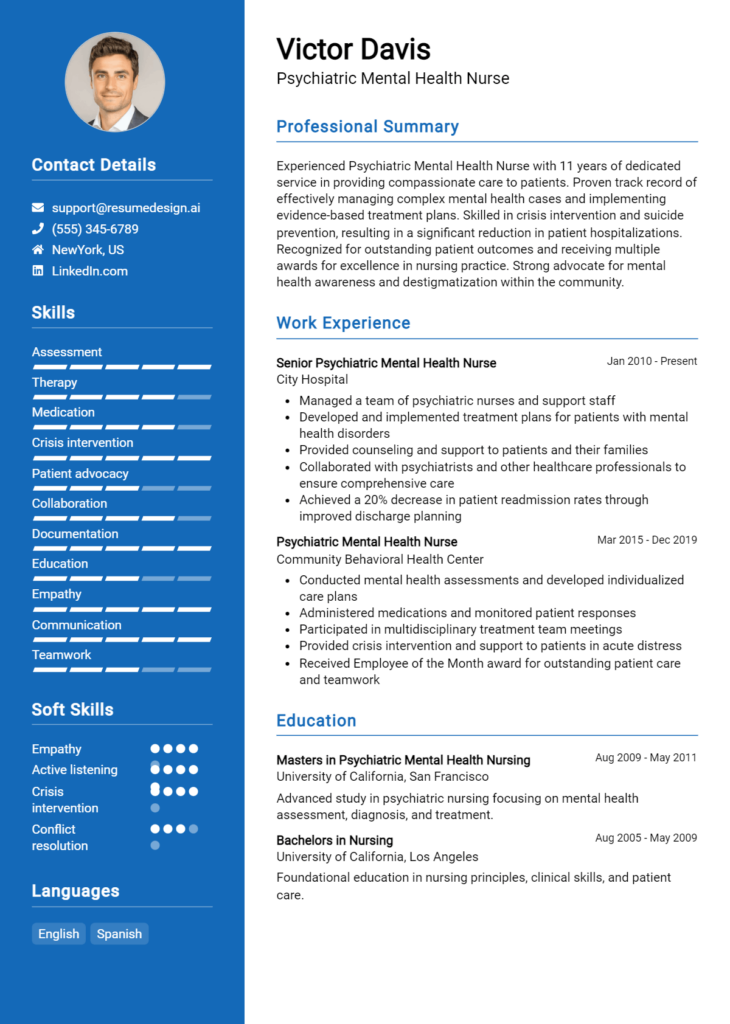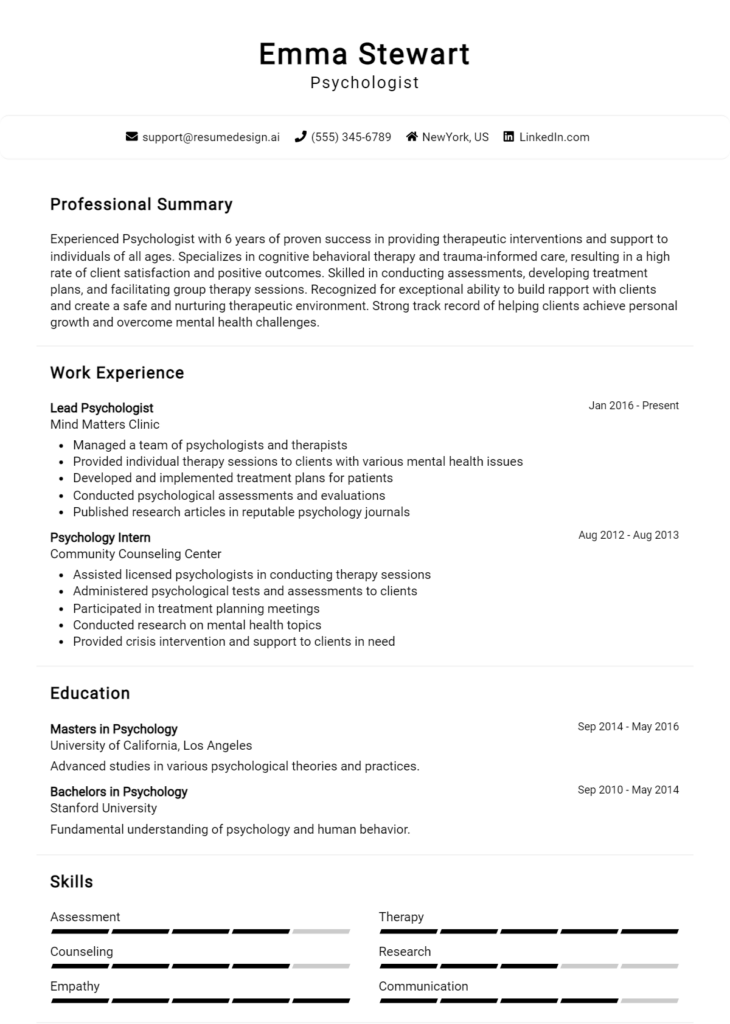School Psychologist Core Responsibilities
A School Psychologist plays a crucial role in bridging the gap between teachers, parents, and students by addressing mental health and educational challenges. Key responsibilities include conducting assessments, providing counseling, and developing intervention plans tailored to individual needs. Essential skills involve technical expertise in psychological evaluation, operational knowledge of educational systems, and strong problem-solving abilities to create effective solutions. A well-structured resume can highlight these qualifications, supporting the organization's overall goals of fostering a healthy learning environment.
Common Responsibilities Listed on School Psychologist Resume
- Conduct psychological assessments and evaluations of students
- Provide counseling services for students with emotional and behavioral issues
- Collaborate with teachers and administrators to develop intervention strategies
- Conduct crisis intervention and support during emergencies
- Implement and monitor Individualized Education Programs (IEPs)
- Provide training and resources for staff on mental health issues
- Engage with parents to support student development
- Analyze data to evaluate the effectiveness of programs
- Participate in multidisciplinary team meetings
- Advocate for student needs within the school system
- Stay informed on current research and best practices in school psychology
High-Level Resume Tips for School Psychologist Professionals
In the competitive field of school psychology, a well-crafted resume is crucial for making a strong first impression on potential employers. Your resume serves as a gateway to showcasing your expertise, skills, and accomplishments, ultimately influencing hiring decisions. Given the sensitive nature of the role and the diverse responsibilities that school psychologists undertake, it is essential that your resume not only highlights your qualifications but also aligns with the specific demands of the position you are applying for. This guide will provide practical and actionable resume tips specifically tailored for school psychologist professionals to help you stand out in a crowded job market.
Top Resume Tips for School Psychologist Professionals
- Tailor your resume to match the job description, emphasizing keywords and phrases that reflect the requirements of the position.
- Showcase relevant experience, including internships, practicum placements, and any work with diverse student populations.
- Quantify your achievements by using specific metrics, such as the number of students served or improvements in student outcomes.
- Highlight industry-specific skills, such as assessment techniques, counseling methods, and intervention strategies.
- Include relevant certifications and licenses prominently, ensuring they align with the job's requirements.
- Utilize a clear and professional format with easy-to-read fonts and organized sections to enhance readability.
- Incorporate professional development experiences, such as workshops and conferences, to demonstrate your commitment to ongoing learning.
- Use action verbs to describe your responsibilities and achievements, making your contributions compelling and dynamic.
- Incorporate any collaborative work with teachers, parents, and administrators to showcase your ability to work within a multidisciplinary team.
- Keep your resume concise, ideally one page, highlighting only the most relevant and impactful information.
By implementing these targeted tips, you can significantly increase your chances of landing a job in the school psychologist field. A well-structured resume that accurately reflects your skills and experiences will not only attract the attention of hiring managers but also set the foundation for a successful career in supporting students' mental health and academic success.
Why Resume Headlines & Titles are Important for School Psychologist
In the competitive field of school psychology, crafting an effective resume is crucial for standing out to hiring managers. One of the key elements of a successful resume is the headline or title, which serves as a succinct summary of a candidate's qualifications and expertise. A strong headline can instantly capture the attention of hiring managers and provide a quick snapshot of the applicant's strengths, making it easier for them to recognize why the candidate is a good fit for the position. It should be concise, relevant, and directly related to the job being applied for, ensuring that it resonates with the specific needs of the school or educational institution.
Best Practices for Crafting Resume Headlines for School Psychologist
- Use clear and direct language to convey your main qualifications.
- Incorporate relevant keywords from the job description.
- Focus on your specific area of expertise within school psychology.
- Keep it concise—ideally, no more than one or two lines.
- Emphasize your unique strengths or accomplishments in the field.
- Avoid generic phrases; tailor your headline to each application.
- Consider including your years of experience or specific certifications.
- Highlight any specialized skills or training relevant to the role.
Example Resume Headlines for School Psychologist
Strong Resume Headlines
Dedicated School Psychologist with 10+ Years of Experience in Special Education Support
Licensed School Psychologist Specializing in Child Behavioral Interventions and Counseling
Compassionate School Psychologist Focused on Enhancing Student Mental Health and Academic Performance
Weak Resume Headlines
School Psychologist
Experienced Professional Looking for Opportunities
The strong headlines are effective because they are specific, showcasing the candidate’s experience, specialization, and focus. They immediately communicate the value the applicant brings to the role, making it easy for hiring managers to see their fit for the position. In contrast, the weak headlines lack detail and fail to engage, offering no insight into the candidate's qualifications or unique attributes. This generic approach can leave a hiring manager uninterested and less likely to consider the applicant for the role.
Writing an Exceptional School Psychologist Resume Summary
A well-crafted resume summary is essential for a School Psychologist, as it serves as the first impression a hiring manager will have of a candidate. This brief but impactful section quickly captures attention by succinctly showcasing key skills, relevant experience, and noteworthy accomplishments that align with the job role. An effective summary distills a candidate's qualifications into a compelling narrative, making it easier for hiring managers to gauge suitability for the position. To stand out in a competitive job market, the summary should be concise, impactful, and tailored specifically to the job being applied for.
Best Practices for Writing a School Psychologist Resume Summary
- Quantify achievements to demonstrate impact, such as improvements in student mental health or academic performance.
- Focus on relevant skills that align with the job description, including assessment, counseling, and intervention strategies.
- Tailor the summary for each job application by incorporating keywords from the job description.
- Keep it concise, ideally within 2-4 sentences, to maintain the reader's attention.
- Highlight unique strengths or methodologies that set you apart from other candidates.
- Use strong action verbs to convey confidence and proactivity.
- Include relevant certifications or credentials to establish expertise in the field.
- Reflect a passion for supporting students' mental health and educational success.
Example School Psychologist Resume Summaries
Strong Resume Summaries
Dedicated School Psychologist with over 7 years of experience in K-12 settings, successfully implementing evidence-based interventions that improved student academic performance by 30% in one academic year. Skilled in conducting psychological assessments and providing individualized counseling to support diverse student needs.
Results-oriented School Psychologist with a proven track record of reducing behavioral incidents by 40% through the development of proactive behavior intervention plans. Experienced in collaborating with educators and parents to create inclusive learning environments.
Compassionate and highly qualified School Psychologist holding a National Certification of School Psychologists (NCSP), with expertise in crisis intervention and trauma-informed practices. Successfully led a mental health awareness campaign that increased student engagement in counseling services by 50%.
Weak Resume Summaries
School Psychologist with experience in schools looking for a new job. I help students with their problems.
Motivated individual seeking a position as a School Psychologist. I have some skills in counseling and assessments.
The strong resume summaries are considered effective because they include quantifiable outcomes, specific skills, and relevant experiences that directly relate to the role of a School Psychologist. They communicate a clear value proposition to potential employers. In contrast, the weak summaries lack specificity and measurable achievements, making them appear generic and less compelling, which can hinder the candidate's chances of standing out in a crowded job market.
Work Experience Section for School Psychologist Resume
The work experience section of a School Psychologist resume is critical as it serves as a comprehensive display of the candidate's professional journey, showcasing their technical skills, leadership capabilities, and commitment to delivering high-quality psychological support within educational settings. This section not only emphasizes the candidate's hands-on experience in assessing and addressing student needs but also highlights their ability to collaborate with educational staff, parents, and community resources. Moreover, quantifying achievements—such as improved student outcomes or successful program implementations—and aligning experience with industry standards are essential to demonstrating a candidate's value and effectiveness in the role.
Best Practices for School Psychologist Work Experience
- Clearly articulate your role and contributions in previous positions, focusing on specific responsibilities and achievements.
- Use quantifiable metrics to demonstrate the impact of your work, such as percentage improvements in student mental health or academic performance.
- Highlight collaborative efforts with teachers, administrators, and parents to illustrate your ability to work as part of a team.
- Incorporate relevant technical skills, such as proficiency in psychological assessment tools or therapeutic techniques.
- Tailor your experience to align with the requirements of the position you are applying for, emphasizing relevant work history.
- Include professional development and continuing education opportunities that enhance your expertise in the field.
- Utilize action verbs to convey your accomplishments effectively and dynamically.
- Maintain a clear and organized format to enhance readability and ensure key information stands out.
Example Work Experiences for School Psychologist
Strong Experiences
- Implemented a new mental health program that resulted in a 30% decrease in student referrals for behavioral issues over one academic year.
- Led a multidisciplinary team to develop individualized education plans (IEPs) for 50+ students, improving student satisfaction rates by 40%.
- Conducted workshops for teachers and staff on recognizing mental health issues, increasing awareness and proactive measures by 60% within the school community.
- Utilized data-driven assessments to identify at-risk students, leading to targeted interventions that improved academic performance by an average of 15%.
Weak Experiences
- Assisted in the development of student programs.
- Worked with some students and teachers to address issues.
- Participated in meetings regarding school psychology.
- Provided psychological support to students occasionally.
The examples categorized as strong are considered effective because they convey specific, measurable outcomes and demonstrate a clear impact on student well-being and academic success. They highlight technical leadership and collaboration, showcasing the candidate's proactive approach and commitment to enhancing the school environment. In contrast, the weak experiences lack detail and quantification, making them vague and unimpressive. They fail to convey the candidate's contributions or the significance of their role, thus diminishing their overall impact on the resume.
Education and Certifications Section for School Psychologist Resume
The education and certifications section of a School Psychologist resume is crucial as it serves as a testament to the candidate's academic qualifications and commitment to professional development. This section not only showcases the candidate's educational background but also emphasizes industry-relevant certifications and ongoing learning efforts that are vital in a constantly evolving field. By providing details on relevant coursework, specialized training, and recognized credentials, candidates can significantly enhance their credibility and demonstrate their suitability for the role of a School Psychologist.
Best Practices for School Psychologist Education and Certifications
- Prioritize listing advanced degrees in psychology, education, or related fields.
- Include relevant certifications, such as Nationally Certified School Psychologist (NCSP) or state-specific licensure.
- Highlight specialized training in areas such as assessment, intervention strategies, or mental health.
- Be specific about coursework that directly relates to school psychology or child development.
- Ensure that all credentials are up-to-date and reflect current best practices in the field.
- Utilize a clear format that makes it easy for hiring managers to scan for relevant information.
- Consider including professional development activities, such as workshops or conferences attended.
- Tailor the section to align with the job description and required qualifications of the position.
Example Education and Certifications for School Psychologist
Strong Examples
- M.A. in School Psychology, University of XYZ, 2022
- Nationally Certified School Psychologist (NCSP), 2023
- Completed coursework in Child Development and Behavioral Assessment
- Certification in Crisis Intervention and Mental Health First Aid, 2023
Weak Examples
- B.A. in Sociology, University of ABC, 2010
- Certification in Basic First Aid, 2015
- Completed coursework in General Psychology (not specific to school settings)
- Outdated certification in Educational Leadership, 2010
The strong examples are deemed effective as they directly align with the requirements of a School Psychologist, showcasing advanced education and relevant certifications that demonstrate the candidate's qualifications and commitment to the field. Conversely, the weak examples lack relevance to the role, featuring outdated or unrelated educational qualifications and certifications that do not enhance the candidate's credibility or appeal for a position in school psychology.
Top Skills & Keywords for School Psychologist Resume
In the competitive field of school psychology, a well-crafted resume is essential for showcasing the unique blend of skills that professionals bring to the table. Skills are not just buzzwords; they reflect the competencies and expertise that are critical for effectively supporting students' mental health and academic success. A strong resume highlights both hard and soft skills, providing potential employers with a clear picture of a candidate's qualifications. The right mix of these skills can significantly enhance a school psychologist's ability to assess, intervene, and collaborate with educators, parents, and administrators to create a positive learning environment.
Top Hard & Soft Skills for School Psychologist
Soft Skills
- Empathy
- Active Listening
- Communication Skills
- Problem-Solving
- Conflict Resolution
- Adaptability
- Collaboration
- Patience
- Compassion
- Cultural Competence
- Critical Thinking
- Time Management
- Resilience
- Teamwork
- Motivation
- Leadership
Hard Skills
- Psychological Assessment
- Behavioral Intervention Strategies
- Data Analysis
- Knowledge of Educational Laws and Policies
- Crisis Intervention Techniques
- Report Writing
- Individualized Education Program (IEP) Development
- Familiarity with Mental Health Disorders
- Counseling Techniques
- Research Methodology
- Statistical Software Proficiency
- Classroom Management Strategies
- Psychoeducational Testing
- Program Evaluation
- Training and Workshop Facilitation
- Knowledge of Social-Emotional Learning (SEL)
- Technology Integration in Education
These skills are crucial in ensuring that school psychologists can effectively meet the diverse needs of students. For those looking to enhance their skills and work experience, focusing on the development of these competencies can make a significant difference in their career trajectory.
Stand Out with a Winning School Psychologist Cover Letter
Dear [Hiring Manager's Name],
I am writing to express my interest in the School Psychologist position at [School/District Name], as advertised on [where you found the job listing]. With a Master’s degree in School Psychology and over [X years] of experience working in educational settings, I am passionate about fostering a supportive and productive learning environment for all students. I believe that my skills in assessment, intervention, and collaboration with educators and families uniquely position me to contribute positively to your school community.
In my previous role at [Previous School/District Name], I successfully implemented comprehensive psychological assessments and developed tailored intervention plans that addressed the diverse needs of students. I take pride in employing evidence-based strategies to enhance student well-being and academic performance. By working collaboratively with teachers and parents, I was able to facilitate workshops that promoted mental health awareness, ultimately leading to a noticeable reduction in behavioral issues and improved student engagement.
I am particularly impressed by [School/District Name]'s commitment to fostering an inclusive environment and prioritizing students' mental health. I am eager to bring my expertise in crisis intervention and my dedication to advocacy to your team. I am also committed to ongoing professional development, ensuring that I am always equipped with the latest research and best practices in school psychology.
Thank you for considering my application. I am excited about the opportunity to contribute to the well-being and success of the students at [School/District Name]. I look forward to the possibility of discussing how my background, skills, and enthusiasms align with the goals of your school. Please feel free to contact me at [your phone number] or [your email address] to arrange a conversation.
Sincerely,
[Your Name]
Common Mistakes to Avoid in a School Psychologist Resume
When crafting a resume for a School Psychologist position, it’s crucial to present your qualifications, experience, and skills in a clear and compelling manner. Unfortunately, many candidates make common errors that can hinder their chances of landing an interview. Being aware of these pitfalls can help you create a polished resume that effectively showcases your strengths and aligns with the expectations of hiring committees in educational settings.
Neglecting Relevant Experience: Failing to highlight experience specifically related to school settings can diminish your appeal. Ensure you emphasize any work with children, educational assessments, or interventions in a school context.
Using Generic Language: Avoid vague terms and phrases. Instead, use specific language that reflects your unique skills and contributions, such as “implemented cognitive-behavioral strategies” rather than “helped students.”
Overloading with Jargon: While it’s important to demonstrate expertise, excessive technical language can alienate non-specialist readers. Strike a balance by explaining complex concepts in an accessible way.
Ignoring the Job Description: Tailoring your resume to the specific job listing is essential. Failing to address the specific qualifications and responsibilities outlined can make your application seem unfocused.
Listing Responsibilities Instead of Achievements: Simply detailing job duties does not convey your impact. Focus on accomplishments, such as “reduced behavioral incidents by 30% through targeted intervention programs.”
Omitting Key Certifications and Licenses: School psychologists often require specific credentials. Ensure you prominently display any relevant certifications, licenses, or endorsements that are critical to the role.
Using an Unprofessional Format: A cluttered or overly elaborate design can distract from the content. Opt for a clean, professional format that enhances readability and emphasizes your qualifications.
Forgetting to Proofread: Typos and grammatical errors create a negative impression and suggest a lack of attention to detail. Always thoroughly proofread your resume or have a colleague review it before submission.
Conclusion
As a School Psychologist, your role is pivotal in fostering the mental health and academic success of students. The article emphasized the multifaceted responsibilities of a School Psychologist, including conducting assessments, providing counseling, and collaborating with educators and parents to create supportive educational environments. It also highlighted the importance of staying informed about best practices and current research in the field, as well as the necessity for effective communication skills when interacting with students, families, and school staff.
To ensure that you are presenting yourself effectively to potential employers, it’s crucial to have a polished resume that showcases your qualifications, experiences, and skills. Reviewing your School Psychologist resume is a proactive step toward advancing your career.
To assist you in this process, consider utilizing available resources such as resume templates, which can help you structure your information clearly and professionally. You can also explore the resume builder for a more guided approach to creating your resume. Additionally, reviewing resume examples can provide inspiration and insight into how other professionals in your field present their qualifications. Don’t forget the importance of a well-crafted cover letter, which you can find templates for at cover letter templates.
Take the time to refine your resume today and position yourself for success in your career as a School Psychologist!

